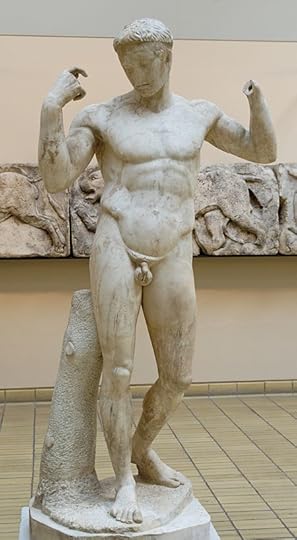What do you think?
Rate this book


290 pages, Hardcover
First published January 1, 1934

My quest for Corvo was started by accident one summer afternoon in 1925, in the company of Christopher Millard. We were sitting lazily in his little garden, talking of books that miss their just reward of praise and influence...Millard asked: “Have you read Hadrian the Seventh?” I confessed that I never had...and by doing so took the first step on a trail that led into very strange places.
My interest in the early years of the eminent is far less than that which the tradition of biographical writing painfully imposes on its devotees. The facts of infancy may be vital when they refer to a prodigy such as Mozart, interesting when relevant to a rebel such as Shelley, valuable when they show the growth of a man out of his place, as Poe; but in Rolphe's case, I felt like his childhood was by much the least interesting part of his life.
There was a sort of ruthless selfishness in him which led him to exploit others, quite regardless of their interest or feelings or advantage. This trait, in small matters, I saw many instances of. He was dressy and particular about his appearance. Church matters were mostly a matter of millinery to him.
I found that it was irritating to help him. He curdled the milk of human feeling by an acidity of nature he was unable to sweeten, however he might desire to sweeten it. And I am sure he did so desire.
He asserted that he understood in part the language of cats; and events so far bore out his claim, that when, in the moonlight, he muttered his incantations on the lawn, strange cats as well of those of the household abandoned their prowls to rub purringly against his legs.
It was a deep satisfaction to discover (The One and the Many) in the depths of a literary agent's cupboard of unretrieved MSS. It was a deeper satisfaction still to know that every one of the works that had been left and lost in obscurity when Frederick William Serafino Austin Lewis Mary Rolfe died suddenly and alone at Venice had been collected together by sympathetic hands, and that, alone of living men, I had read every line of every one. Nothing was left to be discovered; the Quest was ended. Hail, strange tormented spirit, in whatever hell or heaven has been allotted for your everlasting rest!
There ensued for Rolfe a St. Martin's Summer of prosperity. His bond to Mr. Taylor was discharged...the way was clear at last for the man who had so long cried out that, given time and money, he would write and write and write. Both were given him, and he did nothing: it was too late. He made a few beginnings, he recopied his Venetian satire more beautifully than ever, and, since there was no longer an impediment, he accepted the offer for The Weird of the Wanderer. All through 1912 he received cheque after cheque from his partner (or victim) in England; and spent the money without thought of the morrow, wildly and without restraint. He, who had starved on three-centesimi rolls, who had implored to be employed as second gondolier, now flaunted himself on the canals with a new boat and (a privilege usually reserved for royalty) four gondoliers. The sails of his gondola were painted by his own hand; and he dyed his hair (what remained) red. The long days of destitution and unchanged clothes were liberally compensated now, when he became the talk of Venice by his extravagance: it was rumoured that his bedroom was hung with the material of cardinals' robes. His old debts were paid and he moved freely; but his exactions and excuses were continuous. He wrote for fifty pounds, fifty pounds again, then again for more still; he became an open drain upon his patron's purse. Perhaps he knew instinctively that his time was short. Even so, he lived too long.
‘I discovered in one month flat that I could live and drink as much as I liked without working at anything, provided I remained what the locals term a “character”.’
Grant said ‘Hmm,’ and hoped the monologue had come to an end. It hadn’t.
‘I remained a character. I live in this hut. I obtain all my meals free from my many friends who also provide me with my requirements in beer, which, with some self-control, is the only alcohol I allow myself.’
That was probably all a lie, including the part about being a doctor, thought Grant, but what the hell? Who was he to worry about people lying, anyway? Just the same, he did not like Tydon.
I am now simply engaged in dying as slowly and as publicly and as annoyingly to all of you [...]
Some measure of artistic power or sensibility is inherent in all humanity; 'genius' is as good a word as any other to denote those exceptional beings in whom, unaccountably, it rises to full force. And Rolfe was a defeated man of genius.